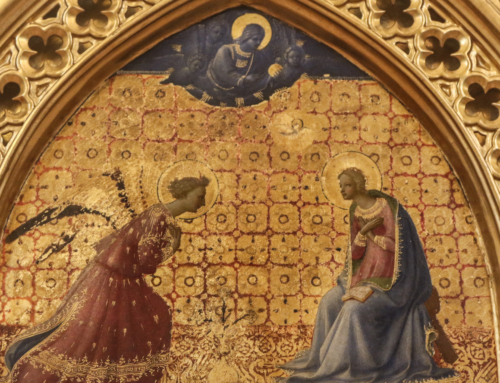Jesus did a few impressive things. He cleansed lepers, gave sight to the blind, healed the sick, and raised the dead. He even brought good news to the poor while he was at it. That is nothing to sneeze at. It is no surprise that, when messengers from John the Baptist come to ask Jesus if he is the Messiah, Jesus responds by listing these accomplishments. Who but the Messiah could do all that?
But then Jesus concludes with a curious phrase: “Blessed is the one who takes no offense at me” (Luke 7:18-23). Just what is so offensive about Jesus’ deeds? Unless fans of leprosy are going to cancel Jesus, his work with the disabled and marginalized seems pretty uncontroversial. Yet, Jesus is the most controversial man of all time. He causes such a stir because he is Truth itself and so cannot be deceived. If we cannot deceive him, then all our sinfulness and failure lies naked before him.
Small doses and bits of the truth are nice, but when you put it all together it can be unpleasant. That’s why there are two sides to every fight. Neither party can quite face the truth head-on. Some slight modifications, additions, or omissions must be made until the story is palatable enough. We cannot look truth in the eye. How much human conflict stems from an inability to tell the truth?
This fine-tuning and re-adjustment of the truth is a skill that can be improved over the course of one’s life. We start as children telling unconvincing tales after fighting with another sibling. Eventually, we hone the skill and do not even realize it. We can fool even ourselves. We distort the truth of how we should act or how we actually act in order to avoid our failures. Sometimes, instead of lying, we simply distract. We bring up past offenses of others or try to rest on our other accomplishments. Then we become blind to what we really are. We cannot walk in the ways of justice. This sickness infects us all, at least a little bit. Who among us would be completely comfortable having our sins bared for all to see? Who among us knows all his or her faults?
Jesus came into the world to bring light to our darkness. Those trapped in darkness may feel threatened. When Jesus judges us, he will judge justly. No spin artist, no verbal masseuse can get around the all-knowing judge. He will bring to light all of the hidden sins to which we were blind. He is the Eternal Truth that has taken human flesh. Sometimes that is offensive.
But Jesus is not like us. He does not wield justice as a weapon for us to fear. His justice is the justice that sets all things right. He afflicts only to heal. Our blindness to our own sin, our inability to walk in justice, is not good. It is not good for others and it is not good for us. It damages relationships. It destroys what should be loved. Jesus is the only one who, with clear vision, is able to diagnose the sickness. He is the one who heals our wounds. The medicine may be unpleasant. It may mean a long time in purgatory. But it is worth it in the end.
Some wounds will not be fully healed in this life. This is why we must encounter the judgment of God after death. For those who give themselves to Jesus, despite all sins and failures, there is freedom in this justice. Jesus is the only one who can look honestly at everything we are and yet love us all the more. This is the promise he made us when he came into the world two thousand years ago. He will deliver this promise when he comes again to judge the living and the dead.
✠
Image: Unknown artist, Christ Pantocrator (CC BY-SA 3.0)






